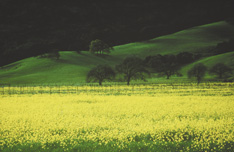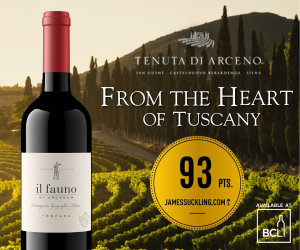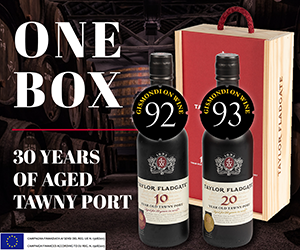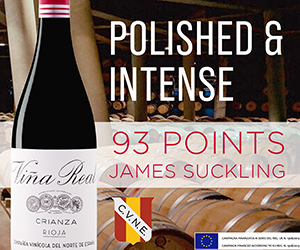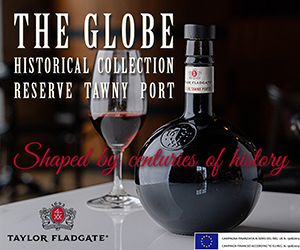After three decades of unprecedented growth and development, it is safe to say California wine producers, big and small, are reeling from the financial after-effects of the collapse of the dot-com market, the Sept.
11, 2001 terrorist attacks and the Two-Buck Chuck phenomenon (a nickname for the original Charles Shaw wines that retail for $1.99 US in the California market).
The latter is perhaps the most terrifying for growers because if consumers acquire a taste for what some are calling a new breed of super-value wine that typically sells for less than $3 a bottle, traditional "premium" wine growers could face extinction.
Some believe the wine glut fuelling super-value wines will soon fade, but there is a doomsday scenario in which premium wineries losing ground to cheaper competitors start cutting back on production to concentrate on quality.
The cutbacks fuel further dumping of premium juice that ends up in the bulk wine market, creating even better-tasting cheap wine and causing consumers to question the whole premium wine market. That will trigger more slashing and burning and before you know it, half of California's 900 premium wineries are out of business, not to mention just as many in Oregon, Washington state and British Columbia.
Fortunately, B.C. consumers as always will remain exempt from such bargains, protected as we are from any free-market mechanisms by the big-brother government monopoly. In fact, since the flip-flop on privatizing government liquor stores, local distributors are telling me it's back to the normal "no business as usual."
Just so you know what you're missing, this week western U.S. retailer Trader Joe's is selling De Loach Zinfandel for $5.99 while we pay $22.99. They have Rabbit Ridge Zinfandel at $6.99, while in B.C. the cost is $23.99. Delicato wines are $5.99 in Washington state and $13.99 here.
It gets worse, but I'll spare you the agony. For the moment, all we can do is continue the search for value wines B.C. style -- that's about twice or now even three times the price our neighbours south of the border are asked to pay for some wines and considerably less than in Alberta.
This week, we focus on several wines from Beringer Vineyards, one of those California wineries struggling to find itself in this zany market. Let's hope they make it.
We begin with the Stone Cellars Chardonnay 2001, a commercial-style chardonnay that opens with spicy, peach, melon aromas and a pleasant hint of vanilla in the background. It's round and slightly sweet on entry with buttery, oily, resiny notes and peach and baked apple flavours. It's a soft, elegant, easy-drinking white without a lot of intensity.
The surprise of the tasting is the Beringer Chardonnay 2000, made from a blend of fruit from estate vineyards scattered from Yountville south into the cooler Los Carneros AVA (American Viticultural Area). Look for a toasted, nutty, yeasty nose with creamy, spicy, peach aromas and a touch of honey. The entry is dry and round and leaner than in previous years. The creamy finish offers buttery, honey and spicy, nutty fruit with baked apple flavours. It's elegant and balanced, making it an attractive wine to pair with food.
Beringer Founders' Estate Shiraz 1999 is aged for 10 months in lightly toasted French and American oak barrels and is blended with some carignane and cabernet sauvignon. The nose is a mix of gamey, leather notes with some tomato leaf and roasted bell-pepper aromas. The textures are soft and round; the entry sweet with more peppery, gamey, earthy, tomato leaf and cherry flavours. Dry and slightly lean and acidic in the finish, it's best served with grilled meats.
The Stone Cellars Merlot 2000 has a bright spicy, carrot and black olive nose with cedar, barnyard notes. I like the silky, smooth textures enhanced by its ripe fruit entry with smoky, black cherry, cola and peppery flavours. It's a suave, ready-to-drink, attractive commercial style, although it is not necessarily what you might expect based on its savoury nose.
The Stone Cellars Cabernet Sauvignon 2000 has a similar spicy, peppery aromas, but it offers more dark fruit aromas streaked with blackberry and smoky leather aromas. Soft, round and smooth on entry with noticeable sweetness and a slight acidity. Cedar, spicy buttery mixes with black cherry flavours. A simple, commercial wine for entry-level drinkers.
The Founders' Estate Cabernet Sauvignon 2000 is a bit richer with even more obvious blackberry, prune, cedar, vanilla, peppery black olive aromas with a touch of leather in the background. It is dry and slightly tannic on entry, yet sweet on the mid-palate and finish. The flavours mix cedar spice, prune, vanilla and confiture flavours with some leather and sawdust notes on the finish. Expensive for what you get.
WEEKEND WINE TASTING: BERINGER VINEYARDS, CALIFORNIA
Wine: Stone Cellars Chardonnay 2001, California
Price: $14.99
UPC: 89819117468
Score: 14/20
Comments: Slightly sweet entry with peach, baked apple flavours.
Wine: Beringer Chardonnay 2000, Napa Valley, California
Price: $29.95
UPC: 89819072965
Score: 15/20
Comments: Butter, honey, spicy, nutty, baked apple with a creamy finish.
Wine: Beringer Founders' Estate Shiraz 1999, California
Price: $19.99
UPC: 89819103553
Score: 13.5/20
Comments: Simple soft shiraz without much varietal character.
Wine: Stone Cellars Merlot 2000, California
Price: $14.99
UPC: 89819117345
Score: 14/20
Comments: Smoky, black cherry, cola, peppery flavours.
Wine: Stone Cellars Cabernet Sauvignon 2000, California
Price: $14.99
UPC: 89819117284
Score: 13/20
Comments: Simple, "sweet" commercial wine for entry-level drinkers.
Wine: Beringer Founders' Estate Cabernet Sauvignon 2000, California
Price: $23.99
UPC: 89819001705
Score: 14.5/20
Comments: Cedar spice, prune, vanilla and confiture flavours.

 quicksearch
quicksearch

